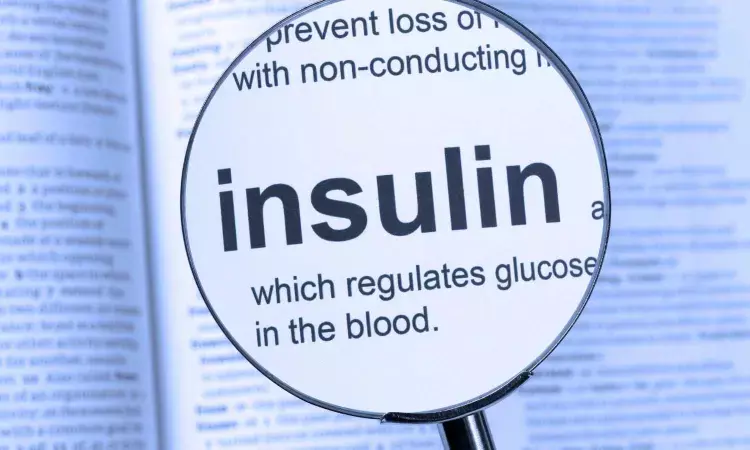- Home
- Medical news & Guidelines
- Anesthesiology
- Cardiology and CTVS
- Critical Care
- Dentistry
- Dermatology
- Diabetes and Endocrinology
- ENT
- Gastroenterology
- Medicine
- Nephrology
- Neurology
- Obstretics-Gynaecology
- Oncology
- Ophthalmology
- Orthopaedics
- Pediatrics-Neonatology
- Psychiatry
- Pulmonology
- Radiology
- Surgery
- Urology
- Laboratory Medicine
- Diet
- Nursing
- Paramedical
- Physiotherapy
- Health news
- Fact Check
- Bone Health Fact Check
- Brain Health Fact Check
- Cancer Related Fact Check
- Child Care Fact Check
- Dental and oral health fact check
- Diabetes and metabolic health fact check
- Diet and Nutrition Fact Check
- Eye and ENT Care Fact Check
- Fitness fact check
- Gut health fact check
- Heart health fact check
- Kidney health fact check
- Medical education fact check
- Men's health fact check
- Respiratory fact check
- Skin and hair care fact check
- Vaccine and Immunization fact check
- Women's health fact check
- AYUSH
- State News
- Andaman and Nicobar Islands
- Andhra Pradesh
- Arunachal Pradesh
- Assam
- Bihar
- Chandigarh
- Chattisgarh
- Dadra and Nagar Haveli
- Daman and Diu
- Delhi
- Goa
- Gujarat
- Haryana
- Himachal Pradesh
- Jammu & Kashmir
- Jharkhand
- Karnataka
- Kerala
- Ladakh
- Lakshadweep
- Madhya Pradesh
- Maharashtra
- Manipur
- Meghalaya
- Mizoram
- Nagaland
- Odisha
- Puducherry
- Punjab
- Rajasthan
- Sikkim
- Tamil Nadu
- Telangana
- Tripura
- Uttar Pradesh
- Uttrakhand
- West Bengal
- Medical Education
- Industry
Semaglutide with Basal Insulin Effective in Diabetes Management: Study

A new systematic review and meta-analysis published in the Clinical Nutrition ESPEN revealed promising outcomes for the combined use of semaglutide and basal insulin in managing type 2 diabetes mellitus (T2DM). This study analyzed 7 randomized controlled trials (RCTs) which involved 2,354 patients and found significant improvements in glycemic control and weight loss without a higher risk of serious adverse events.
The primary measure of the research was to assess changes in hemoglobin A1c (HbA1c) levels. Secondary outcomes included weight loss, fasting blood glucose (FPG) changes, and the incidence of adverse effects, including gastrointestinal reactions.
The patients who received a combination of semaglutide and basal insulin experienced a substantial reduction in HbA1c levels, with a mean difference of -1.17% when compared to placebo or other treatments. Weight loss was also notable, where the patients shed an average of 5.99 kg, and fasting blood glucose levels dropped by 1.08%.
While the combination treatment did not increase the risk of general adverse events, it was associated with a higher occurrence of gastrointestinal issues such as nausea, vomiting, and diarrhea. Also, there was no increased risk of hypoglycemia which is a common concern in diabetes management.
The findings support the potential of semaglutide in combination with basal insulin as an effective treatment strategy for individuals with T2DM who require intensified glycemic control and weight management. These results may influence treatment guidelines and offer clinicians a safer option for managing complex cases of diabetes without the heightened risk of dangerous blood sugar lows.
Given its impact on both glycemic control and weight loss, semaglutide continues to demonstrate versatility as a crucial tool in the therapeutic arsenal for T2DM management. Overall, this research offers hope for people living with type 2 diabetes by highlighting a treatment regimen that achieves clinical goals while minimizing risks. Further studies and dedicated trials may refine the dosage guidelines and help optimize patient outcomes.
Source:
Chen, B., Tao, L., Tian, M., & Ji, Z. (2025). Efficacy and safety of combination of semaglutide and basal insulin in patients with of type 2 diabetes mellitus: A systematic review and meta-analysis. Clinical Nutrition ESPEN. https://doi.org/10.1016/j.clnesp.2025.01.056
Neuroscience Masters graduate
Jacinthlyn Sylvia, a Neuroscience Master's graduate from Chennai has worked extensively in deciphering the neurobiology of cognition and motor control in aging. She also has spread-out exposure to Neurosurgery from her Bachelor’s. She is currently involved in active Neuro-Oncology research. She is an upcoming neuroscientist with a fiery passion for writing. Her news cover at Medical Dialogues feature recent discoveries and updates from the healthcare and biomedical research fields. She can be reached at editorial@medicaldialogues.in
Dr Kamal Kant Kohli-MBBS, DTCD- a chest specialist with more than 30 years of practice and a flair for writing clinical articles, Dr Kamal Kant Kohli joined Medical Dialogues as a Chief Editor of Medical News. Besides writing articles, as an editor, he proofreads and verifies all the medical content published on Medical Dialogues including those coming from journals, studies,medical conferences,guidelines etc. Email: drkohli@medicaldialogues.in. Contact no. 011-43720751


